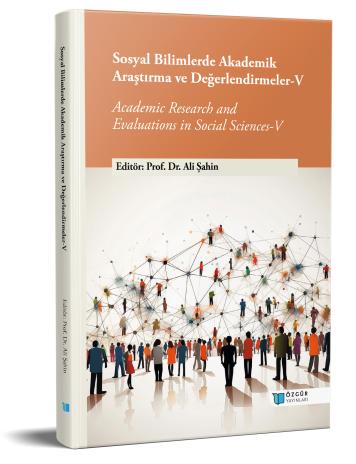
Professional Competence Training for the Adaptation of Professional Members to the Digitalized Accounting World
Chapter from the book:
Şahin,
A.
(ed.)
2023.
Academic Research and Evaluations in Social Sciences - V.
Synopsis
With the technological developments in the world, in other words, the effect of emerging digitalization, radical changes have been experienced in accounting transactions, as in many other branches. The desire and adoption of accounting professionals to switch to digital applications accelerated with the Covid-19 epidemic, which affected the whole world. With digitalization, the demands of professional staff are to provide more service to their members by preventing loss of time and permanence in the place. The biggest goal in accounting education is; It is the recruitment of accounting professionals who are self-expressive, have technical equipment, and are compatible with the differences in the digital age. Members of the accounting profession consider the changes in the world and the events to be sufficient for their equipped skills, and continue their professional education throughout the process of practicing the accounting profession. Educational approaches defined as compulsory, continuous or lifelong education are where the accounting profession needs to be able to adapt to the developments in the world. Updating the professional knowledge and capacity of professional accountants according to the period in which they live will be possible during the period in which the accounting profession is practiced and their participation in professional training programs by relevant institutions. This focuses on the introduction and definition of problems related to professional accounting at the beginning of continuing education and how training programs with these skills can be made more efficient. The study consists of 6 chapters. The first introduction part of the study consists of chapters. In the second part, the reflection of digital accounting in financial statements and the reorganization of accounting accounting are mentioned. In addition, some difficulties that digital accounting poses to those practicing accounting are mentioned. The problems mentioned are as follows: Lack of a digital transformation strategy, lack of coordination between management and accounting departments, deficiencies in digital transformation, lack of cyber security in digital transformation, and fast playing of digital games. In the third section, some technological and basic data that accounting professionals can improve are mentioned. The technological growths mentioned are: Social Media, data analytics, customer relationship management, video conferencing, digital marketing-seo, email marketing, content marketing and cyber security. In chapter 4, some advantages of technologically advanced educational products are mentioned. The stated advantages are as follows: It saves money, saves time, promotes competitive advantage, increases security and provides team building opportunities. In the 5th chapter, what needs to be done to make technological education programs successful is mentioned. Things to do are: Modern education infrastructure, invest in infrastructure, decide on technology model, create a virtual learning environment, emphasize education and technological development, minimize investments in servers, storage and software, replace textbooks, be flexible, avoid government aid Examples are given as used. Chapter 6 consists of the conclusion section.

